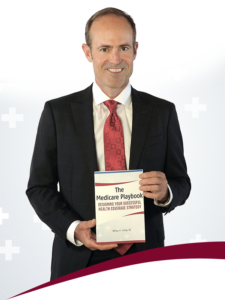Maybe you’ve already got everything figured out when it comes to your retirement. Maybe you’re putting it off because it stresses you out. Or maybe you’re just not worried about it. Regardless of where you fall, it’s always good to be knowledgeable so you can make the most informed choices about your future.
Let’s discuss the five of the most common mistakes people make when planning their retirement and how you can avoid these mistakes.
1. Not having a plan.
Around 41% of Americans haven’t estimated how much they’ll need during retirement. Experts suggest you should have 80% of your income pre-retirement. So, if you typically made $100,000 a year, you’ll need at least $80,000 a year during retirement. To avoid outliving your money, you need to have a solid, thoughtful plan that accurately estimates your financial needs.
2. Put off saving for retirement.
It’s true: we’re all procrastinators at heart. Most Americans don’t start actively saving for retirement until they’re in their 40s and 50s, which gives them 15–25 years of planning. This may seem like enough time, but your retirement has to last you decades potentially. Each year you start saving sooner, the more money you’ll have to cushion your needs.
3. Plan to work indeterminately.
Maybe your plan is to simply work during retirement, which is a great idea—in theory. Not so much in practice. While 53% of Americans have this plan of working past 65, only one in five Americans is employed after 65. You may be forced to retire sooner than you’d like because of health reasons or because of employment changes like layoffs and bankruptcy. So, you have to plan for the worst, and assume you won’t be working at 65.
4. Relying on Social Security and/or claiming it too early.
The average monthly social security benefits for the retired worker is $1,461 in 2019. This number varies based on age, years worked, and average income.
Social security can start being drawn at age 62. However, your monthly check will be reduced by 30% if you claim it this early. The age you receive your full benefits is 67. Each year after that until 70, you’ll get an 8% increase. As you can tell, waiting means a significant difference.
5. Not considering health care costs.
The average couple needs $285,000 saved for health care costs alone during retirement; this number, of course, varies based on a lot of factors, but it’s a good estimate. On top of that number, nearly 70% of Americans 65 and older will need some kind of long-term care at some point, and these costs can rack up to $100,000, or even more, a year depending on the type of care you need. Medicare will only cover the first 20 days of long-term care at a medical facility, like a nursing home.
Don’t Wait. By preparing in advance, your transition into retirement will be smooth and met with confidence. Making smart decisions now can mean the difference between struggling and being comfortable.
If you have any questions or need advice, feel free to reach out to our Retirement Income and Estate Planning Expert Kevin Conroy, and he’ll be happy to guide you through the process with an educated hand. Simply schedule a free appointment here.
You can also read through our Financial Protection Program special report, which is a simple six-step program to ensure your financial security and peace of mind. Download a free copy here.



